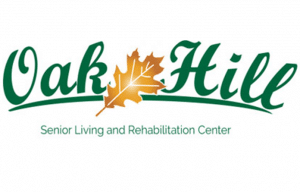Pritzker delivers State of State
Gov. JB Pritzker gave his State of the State address last Wednesday, placing special emphasis on future investment in education, public health and social services.
Pritzker opened his address highlighting progress in the area of fiscal responsibility and the progress made since his address prior to the COVID-19 pandemic.
He specifically compared the $17 billion in debt the state owed in 2020 – including a $4.5 billion Unemployment Trust Fund debt and $8 billion in “overdue fees” – to the “$2.3 billion rainy day fund” he said Illinois is currently building toward.
“As of Fiscal Year 2023, all our state’s short-term and medium-term liabilities will have been eliminated,” Pritzker said. “All of it. Our budgets are built on a solid foundation of normalized state revenue and more efficient management of state resources.”
Much of the governor’s address was focused on education, with his plans for investment ranging from early childhood to higher education.
Concerning early childhood, Pritzker spoke about Smart Start Illinois and its four elements of pre-K, childcare, early intervention and home visiting.
The most substantial part of Smart Start would be expanding the state’s free public education to include universal pre-K.
Also on public education, Pritzker addressed various shortcomings with much of the state’s schools, particularly teacher shortages that have affected a number of districts in Illinois.
School districts in Monroe County have reported such shortages, with Columbia and Waterloo forced to fill any of their vacancies however they can.
“My teacher pipeline proposal directs the $70 million annually over each of the next three years to the 170 school districts with the most acute needs and vacancies,” Pritzker said. “Those districts represent over 80 percent of the unfilled teaching positions in our state. Filling them will improve the student-teacher ratio for over 871,000 students.”
Access to social services was also a substantial part of the governor’s address. He emphasized challenges that children face in getting behavioral health assistance.
“Today in Illinois there is no single, consistent front door for young people or for families to walk through if they need behavioral health care,” Pritzker said. “There is no central website that parents can search or phone number to call. Instead, they are left to navigate a confusing and overlapping multiple agency bureaucracy on their own.”
Pritzker described his plans to invest $10 million toward an expansion of the Comprehensive Community Based Youth Services program to provide 24/7 services for children and teens, with services ranging from assessments, crisis stabilization and housing.
Pritzker also spoke about poverty and homelessness in the state, proposing $50 million toward Temporary Assistance for Needy Families so Illinois families in poverty “have more help to cover basic necessities like transportation, electricity and food.”
He also spoke on reproductive healthcare, referencing the strain on Illinois healthcare providers as neighboring states have restricted access to such care following the overturning of Roe v. Wade last year.
Concerning public safety, Pritzker discussed support for law enforcement in reducing crime and cracking down on drugs – particularly fentanyl.
Referencing the strain that the pandemic placed on the state’s public health infrastructure, Pritzker proposed $45 million in upgrading the Department of Public Health’s IT for Illinois’ National Electronic Disease Surveillance system.
He also proposed $3 million for Healthcare Worker Loan Repayment and Scholarship programs.
Following the governor’s address, the Illinois House Progressive Caucus released a statement voicing support of recent and future action, noting the importance of addressing further issues of childcare, housing and healthcare including mental health services.
“As we will outline in the coming weeks, our Progressive Caucus is committed to supporting an aggressive agenda of legislation and policy ideas this spring to take these issues head on and to build on the Governor’s vision,” the statement said. “We look forward to working with Gov. Pritzker and our colleagues in the Legislature to put progressive ideas at the forefront of policies that make Illinois better today, and even better tomorrow.”
In local opposition, Sen. Terri Bryant (R-Murphysboro) released a statement acknowledging Pritzker’s “positive notes during his budget address,” but added the governor also described $3 billion in spending that could harm the state with a potential economic recession on the horizon.
“The Governor didn’t get the progressive income tax he wanted two years ago, so now it appears that his plan is to spend us into a tax increase with this budget proposal,” Bryant said. “We need to refrain ourselves from needlessly spending on every wish list item and ensure we prioritize spending on things we can all agree upon while our state’s finances are still in a good position.”






